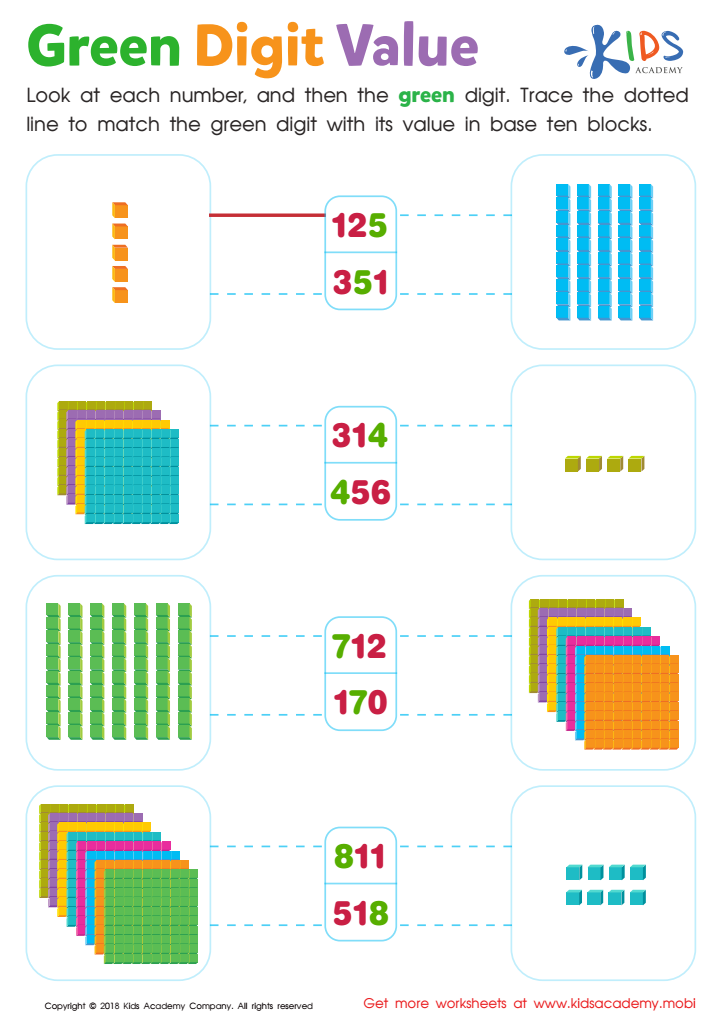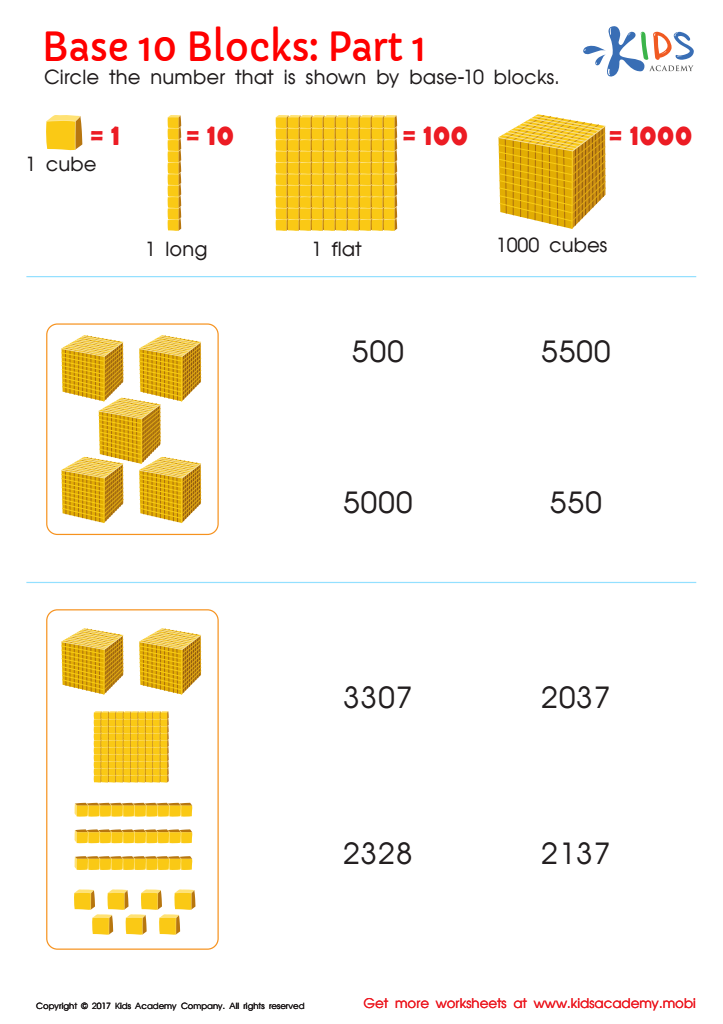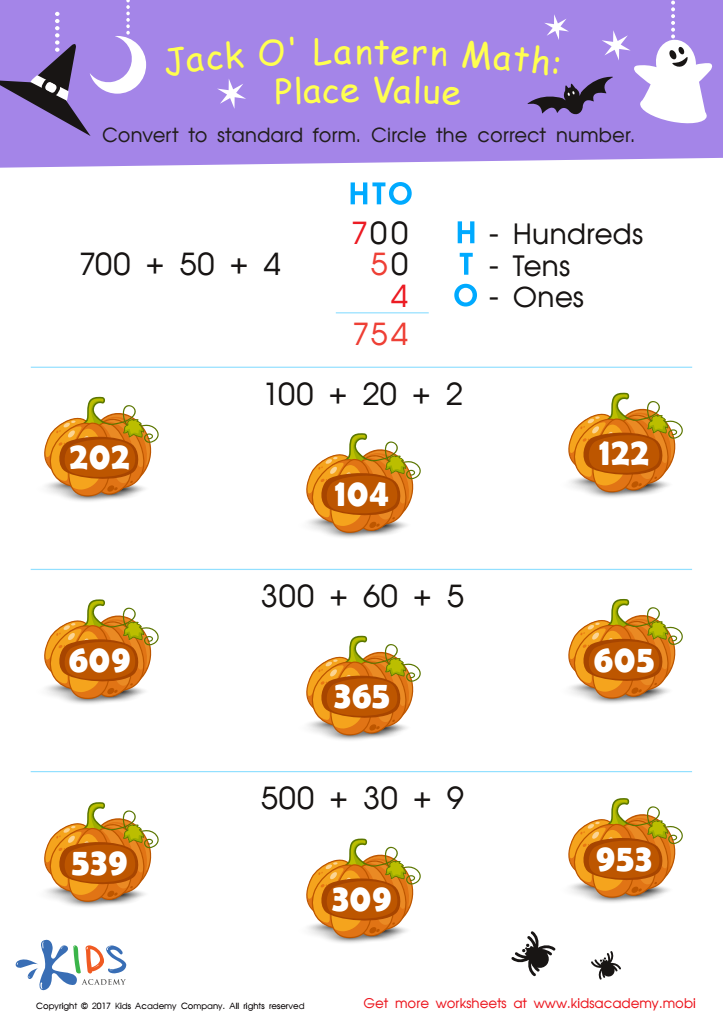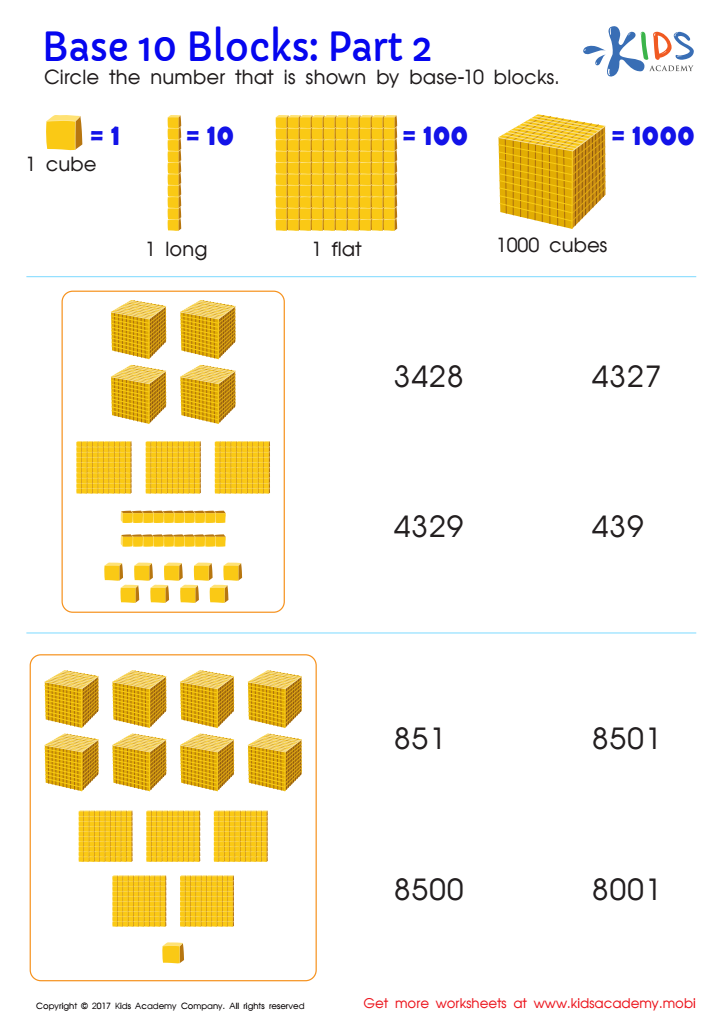Understanding place values Extra Challenge Numbers Worksheets for Ages 5-9
4 filtered results
-
From - To
Our "Understanding Place Values Extra Challenge Numbers Worksheets" for ages 5-9 are designed to help young learners master essential math skills in a fun, engaging way. These printable worksheets challenge students to deepen their comprehension of place value concepts, recognizing the value of every digit in a number. Perfectly suited for beginner learners and advanced young mathematicians, these activities enhance their confidence and problem-solving abilities. Delightfully illustrated and pedagogically robust, our worksheets align with educational standards, turning complex concepts into enjoyable tasks for children, sparking a lifelong interest in mathematics. Promote critical thinking and numerical literacy today!


Green Digit Value Worksheet


Place Value Thousands Worksheet


Free Place Value Worksheet


Place Value Worksheet: Thousands
Understanding place value is crucial for young children because it forms the foundation of mathematical skills and number sense. Place value helps children grasp how numbers work, distinguishing between units, tens, hundreds, and so on, which is essential for performing arithmetic operations like addition, subtraction, multiplication, and division. For ages 5-9, mastering place values not only improves their computational skills but also enhances logical thinking and problem-solving abilities.
Parents and teachers should care because a strong grasp of place value contributes significantly to a child's overall mathematical confidence and competence. Early difficulties in understanding place value can lead to long-term challenges in learning math. Addressing these at a young age prevents future struggles and builds a solid base for more complex mathematical concepts.
Place value extra challenges for kids aged 5-9 offer engaging and stimulating ways to deepen their number understanding. These activities aid in the internalization of mathematical concepts through practical application and can make learning fun and interactive. They bust the myth that math is merely about memorizing facts, highlighting its logical structure and patterns instead.
Encouraging curiosity and excitement about numbers through these challenges helps develop a positive attitude toward math, enabling young learners to approach studies with enthusiasm and resilience. Therefore, both parents and teachers play a critical role in fostering an appreciation for place value, setting the stage for academic success and lifelong numerical literacy.
 Assign to My Students
Assign to My Students





















